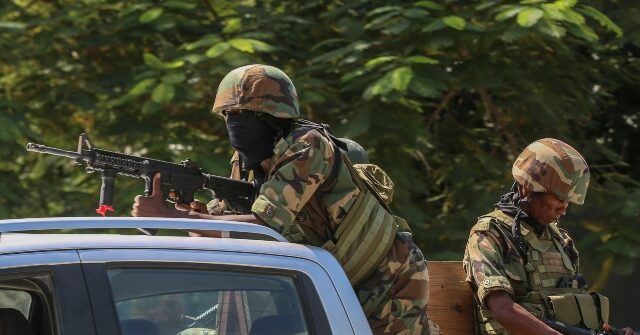On Thursday, a United Nations helicopter came under gunfire while flying over Haiti, forcing it to make an emergency landing in the capital, Port-au-Prince. Although U.N. officials declined to comment on the specifics of the incident, a source speaking anonymously to the Associated Press (AP) confirmed that there were no injuries reported. This attack represents a significant record of violence against international observers and peacekeepers, highlighting the increasing lawlessness and dominance of gangs operating in Haiti.
At the time of the assault, the helicopter was transporting three crew members and 15 passengers. Photographic evidence shared with CNN depicted at least eight bullet holes in the helicopter’s fuselage, including damage to its rotor system. The aircraft was clearly marked as a U.N. vehicle, specifically assigned to the World Food Program (WFP). In response to the attack, the WFP highlighted the critical role of humanitarian air transport in delivering aid throughout Haiti, given that gang violence has rendered many local roads too dangerous for travel. As a precaution, the WFP decided to cancel its planned helicopter flights for the following day.
The gang violence in Haiti has also raised concerns regarding other transportation methods. U.S. airlines are contemplating suspending flights to Port-au-Prince once again, as they had done after a significant uptick in violence earlier in the year. This ongoing instability has a broader effect on humanitarian efforts and the safety of foreign nationals within the country. Other reports detailed an incident on Tuesday, where two armored vehicles belonging to the U.S. Embassy came under attack by members of the 400 Mawozo and Chen Mechan gangs. Mirroring the earlier helicopter incident, there were no injuries reported from this confrontation.
In a compilation of events, a source from the Miami Herald noted that one of the vehicles targeted belonged to the U.S. chief of mission in Haiti. Although the chief’s vehicle was unharmed, another vehicle was hit multiple times in the rear, resulting in shattered glass. Additionally, several threatening comments directed at the U.S. Embassy from gang leader Jimmy “The Barbecue” Cherizier have raised alarm within U.S. diplomatic circles. In social media posts, Cherizier made bizarre claims regarding an alleged invitation to a meeting at the embassy, which the State Department has categorically denied.
As tensions rise, CBS News reported on the evacuation of 20 U.S. embassy personnel following the vehicle attack in Port-au-Prince. This evacuation underscores the precariousness of the security situation in Haiti, where both foreign diplomats and domestic citizens are increasingly at risk. The U.S. State Department has expressed its deep concern over the ongoing violence that is destabilizing Haiti’s government and undermining hopes for a peaceful resolution, emphasizing that the situation poses a threat not only to U.S. personnel but to the safety and security of the Haitian people as well.
The current conditions in Haiti reflect a broader crisis affecting the nation, marked by gang violence, political instability, and humanitarian challenges. The international community, particularly organizations like the U.N. and WFP, is under pressure to navigate these tumultuous circumstances while seeking to deliver aid and ensure the safety of their personnel. As the violence escalates, there seems to be a critical need for a coordinated international response to restore order and secure the region, allowing for future peace and security for both the local population and foreign nationals involved in humanitarian efforts.

